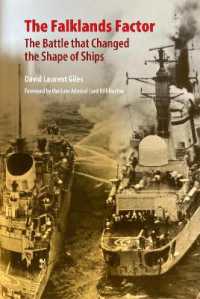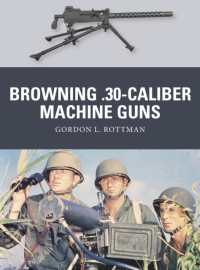- ホーム
- > 洋書
- > 英文書
- > Literary Criticism
Full Description
Metafictionality has become the cornerstone of the stylistic zeitgeist of science fiction, fantasy, and horror in the twenty-first century. This trend reaches back to literary experiments first undertaken and developed during the science fictional New Wave. This vein of experimentalist and frequently stylistically complex science fiction from the mid- and late twentieth century, however, often does not look much like the parallel experiments found in postmodern fiction in the 1960s. Such texts frequently embed their self-referential fireworks in genre conventions and tropes, masking the extent of their experimentalism. Such worlds, however, ask difficult questions of the genre itself. What world is being portrayed, and is it even possible? How alien can science fiction really be? What even is a science fiction world? How do we understand a science fiction world? What part does the reader play in the creation of the science fiction world? Using narratological and stylistic analyses of Kurt Vonnegut, Samuel R. Delany, Ursula LeGuin, Joanna Russ, and Brian Aldiss, this book provides answers to the question of how science fiction is so perfectly formed to ask these kinds of questions of its own world and fictional praxis - and explores how these texts allow those worlds to wrap back on themselves in an endless prismatic spiral of self-awareness.
Contents
Introduction - 'At Least You're Not Fictional': Words, Worlds and John Scalzi's Redshirts (2012)
How to Build a World: Metafiction, Science Fiction and Literary Experimentalism
Kurt Vonnegut's God Bless You, Mr Rosewater and Breakfast of Champions: Narrative Worlds in Science Fiction
Brian Aldiss's Frankenstein Unbound: The Writerly Science Fiction Text
Joanna Russ's (Extra)Ordinary People and We Who Are About To...: Temporal Narrative Framing and Self-Awareness
Narrating Alienness: Ursula K. Le Guin and the Untranslatability of Narrative Worlds in Changing Planes
'Prism, Mirror, Lens': Samuel R. Delany's Dhalgren
Some Concluding Propositions and Hypotheses








